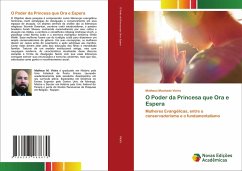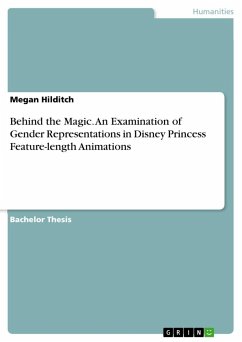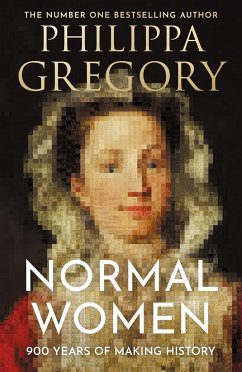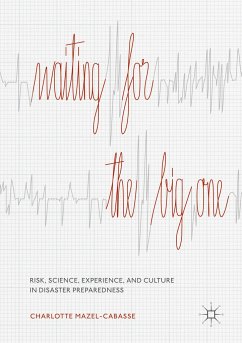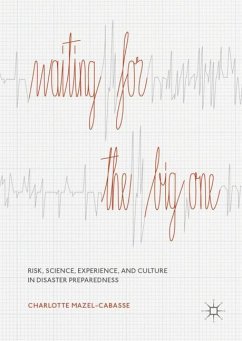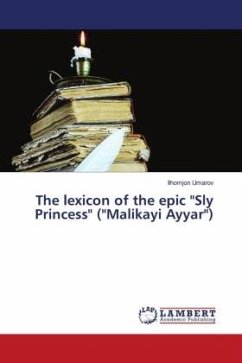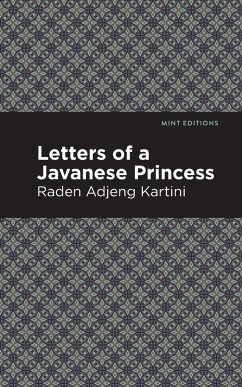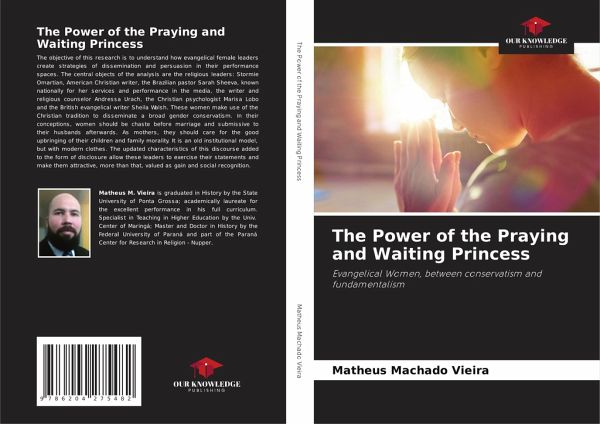
The Power of the Praying and Waiting Princess
Evangelical Women, between conservatism and fundamentalism
Versandkostenfrei!
Versandfertig in 6-10 Tagen
51,99 €
inkl. MwSt.

PAYBACK Punkte
26 °P sammeln!
The objective of this research is to understand how evangelical female leaders create strategies of dissemination and persuasion in their performance spaces. The central objects of the analysis are the religious leaders: Stormie Omartian, American Christian writer, the Brazilian pastor Sarah Sheeva, known nationally for her services and performance in the media, the writer and religious counselor Andressa Urach, the Christian psychologist Marisa Lobo and the British evangelical writer Sheila Walsh. These women make use of the Christian tradition to disseminate a broad gender conservatism. In t...
The objective of this research is to understand how evangelical female leaders create strategies of dissemination and persuasion in their performance spaces. The central objects of the analysis are the religious leaders: Stormie Omartian, American Christian writer, the Brazilian pastor Sarah Sheeva, known nationally for her services and performance in the media, the writer and religious counselor Andressa Urach, the Christian psychologist Marisa Lobo and the British evangelical writer Sheila Walsh. These women make use of the Christian tradition to disseminate a broad gender conservatism. In their conceptions, women should be chaste before marriage and submissive to their husbands afterwards. As mothers, they should care for the good upbringing of their children and family morality. It is an old institutional model, but with modern clothes. The updated characteristics of this discourse added to the form of disclosure allow these leaders to exercise their statements and make them attractive, more than that, valued as gain and social recognition.



